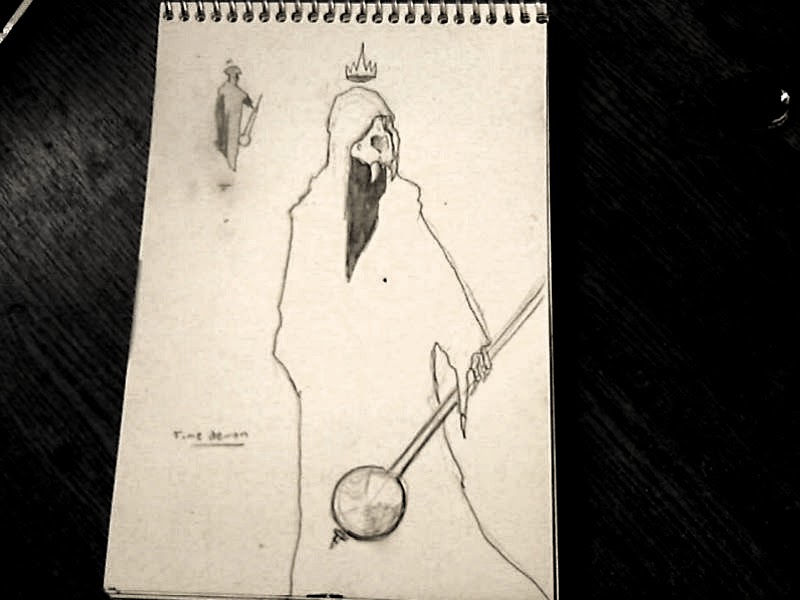Having played a couple of sessions I think I have some.
Having played a couple of sessions I think I have some… analysis? observations? ramblings? Dunno, ideas I guess, about Blades in the Dark. I’ll need some extended play to actually come up with substantial feedback for the overall game, but for now I have something that might worth a reading. My take after some sessions of play:
(Also: the g+ community exploded since the game got funded [yay!] so I couldn’t keep up with all posts. I apologize if I’m being reiterative. This comes from my own experience and is a completely personal take on the game).
We ended one session early, the guys had taken up a lot of stress this and last sessions (two of them even got trauma) and we wrapped up arguing about stress (or discussing, something in between). Some neat takes came from there (specially from Uriel and Diego, I’ll expand on that later), but one of the ideas that formed in my head from that argument was that the game is not about characters, its about the crew. Trauma might take your character away, he might even end up as a cool contact in the future, but the crew? The crew goes on. I think that vice overindulgence, gang mechanics and trauma support this. There are rules that complement the idea of a player having more than one character. Hell even coin is managed as a group. So:
THE SCORE AND CREW GAME
I started to notice that we were playing two interconnected but markedly different games. Every score has its own set of priorities, challenges and rewards. Action and Effect rolls, Teamwork rules, etc. This is the score game, an inside perspective of the adrenaline fueled lives of a scoundrel. S**t blows up, blood is drawn and characters dodge the bullet, come up victorious or die trying.
But then there’s the crew game. Development, Downtime and, specially, Tier and faction status rules. This is when you zoom out and get to play a bigger game. The crew is a low-level character struggling to reach true “movers and shakers” status. The players speculate who they’re going to help and who they’re going to screw, deal with the fallout, get contacts, get intel, move the gears inside the Duskwall clock.
And here’s where it gets interesting: both games form a virtuous circle.
Lets start from the beginning: we five guys get together to survive in the streets of Duskwall through the dark arts of thievery. We move contacts, get a neat spot, and are approached by the Crows, they run the district, they are cool, they are powerful and above all, they are not starving. We want that, we will get there someday. But there are bills to pay, so we plan a score. Things get rough but we get some decent coin out of it and some minor entanglements as fallout. Not enough to rule, but enough to eat another meal.
Things move around us, there is a war in Crow’s Foot, people start asking us favors, we form contacts and hell, maybe we could get somewhere with this. We have to help this guy, Baz, he says we have future.
So we play the score game, things happen, people are killed, favors are earned and paid, ghost haunt us, coin is spent. But we don’t live in an isle, we make enemies and allies, we have s*t to take care of, we have a goal, we are playing the *crew game.
The cycle is: we start a score, the score introduces new elements in the fiction, those elements affect other factions, those factions react, we try to take the most of this reactions and climb the tier ladder, it affects other factions, we have to deal with it so we make another score… S**t happens.
*Score game -> Crew game -> Score game *
Why this is awesome? Because the game ensures that player actions MATTER. They affect directly and deeply the game setting. By zooming in and out in scope we as a gaming group form together a snowball of adventures.
Again, I have to play extendedly to see how this develops, but if I have to take something from Blades in the Dark, is how it addresses the issue of players having an impact on the game world. I think this is my feedback. What you think?


